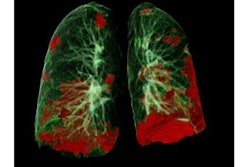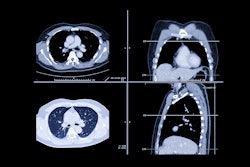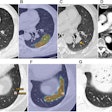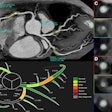The incidence of lung cancer screening (LCS) with low-dose CT (LDCT) among eligible people with disabilities could use improvement, researchers have reported.
A team led by Hermine Poghosyan, PhD, from Yale School of Nursing in New Haven, CT, conducted a study that included data from 4,407 adults eligible for lung cancer screening taken from the 2019 Behavioral Risk Factor Surveillance System, Lung Cancer Screening Module. The group based its research on the 2013 U.S. Preventive Services Task Force (USPSTF) criteria for LCS. The disability types consisted of limitations in hearing, vision, cognition, mobility, self-care, and independent living.
The researchers found the following:
- In 2019, 16.4% of LCS-eligible adults were screened for lung cancer.
- Of these, 49.6% had no disability and 14.5% had more than three disabilities.
- Mobility was the most prevalent disability type (35.4%), followed by cognitive impairment (18.2%) and hearing (16.6%).
- LCS was more prevalent in adults with disability in self-care versus no disability in self-care (24% compared with 15.5%, p = 0.01); disability in independent living versus no disability in independent living (22.2% vs. 15.4%, p = 0.02); and cognitive impairment disability versus no cognitive impairment (22.1% compared with 15.3%, p = 0.03).
"Despite the lack of clinical guidelines on LCS among individuals with disabilities, some individuals with disabilities are being screened for lung cancer," the researchers concluded. "Future research should address this knowledge gap to determine clinical benefit versus harm of LCS among those with disabilities."
The complete study can be found here.




















